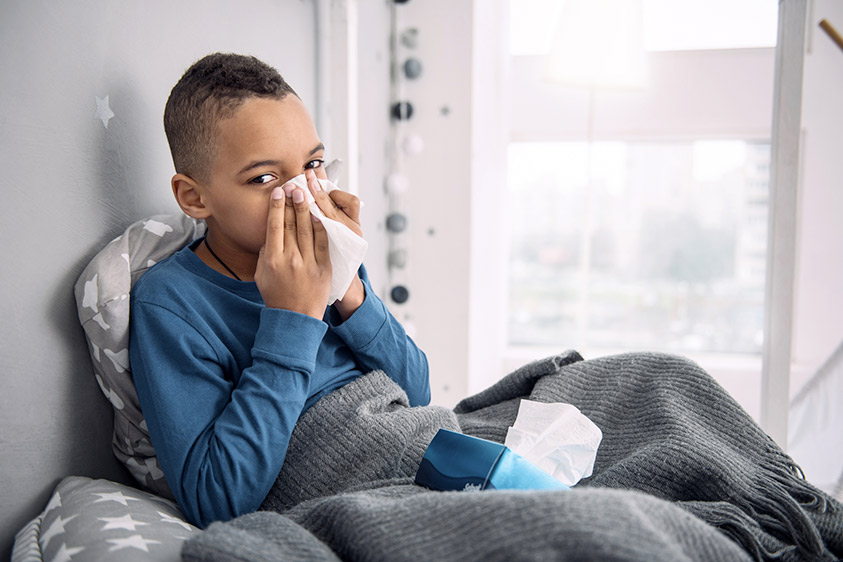
What is a cold?
A cold, or what are called “upper respiratory infections” is a viral infection. They are more common than any other childhood illness. It is common for children to get 5-7 colds during a winter season. This is because there are several different viruses that cause colds. There are even different new strains of these viruses. Although colds are no fun and make you feel terrible, the good news is that most colds go away by themselves and do not lead to anything worse.
What are the symptoms of a cold?
- Runny nose (first clear and then later often thicker, colored mucous)
- Sneezing
- Low fever – 101-102F (that is usually worse at night)
- Not wanting to eat
- Sore throat, and maybe difficulty swallowing
- Cough
- Whiny, grumpy, fussy
- Slightly swollen glands
A typical cold without major problems should go away slowly after seven to ten days.
When should I call the pediatrician?
Older children with a cold don’t usually need to see a doctor unless they look very sick. If it is a child less than three months then call the pediatrician at first sign of illness. With young babies, it may be hard to tell when they are very sick. Colds can become dangerous and lead to things like bronchiolitis, croup, or even pneumonia.
If the child is older than three months, call if:
- The openings of the nose are getting larger with each breath and you notice that skin above the ribs is sucking in with each breath (retractions)
- Lips or nails are turning blue
- Ear pain
- Temp 102F or more for more than 48 hours
- Too sleepy or too cranky
- Cough will not go away – lasting more than a week
- Symptoms last more than 10 days
What is the treatment for a cold?
There is no cure for a cold. Antibiotics have no effect of viruses. The best thing for a child with a cold, is plenty of rest and lots of liquids. They won’t be expected to eat much, but they should be drinking. Other things to try to help during the illness.
- Nose drops or spray – nasal saline drops are sold over the counter. Remember, infants can’t blow their nose – so you will have to help them by using a bulb suction to help remove the mucous.
- Humidifier – put a cool-must humidifier in the room to help make the nasal mucous thinner. Make sure to clean and dry the humidifier to help prevent bacteria or mold from growing.
- If over one year old, try honey for cough
- Cough drops or lozenges for children over 4 years
- Acetaminophen or ibuprofen for fever
- If your child is less than 3 months old and has fever, call the pediatrician right away
- Ibuprofen can be used in any child over 6 months old
- Do not give your child aspirin
- Also make sure you have the right dose in milliliters for your child’s weight. See the list below. It is best to give with a syringe or dosing cup to get the right dose. Don’t use spoons to estimate the dose
- Studies have shown that over the counter cough medications do not help children younger than one and have potentially have some serious side effects. After age one, we recommend cough medication that has a single active ingredient like delsym. For those less than one year old, Zarbee’s all natural remedy may provide some relief (make sure to get the infant version without honey).




